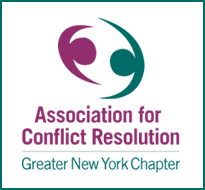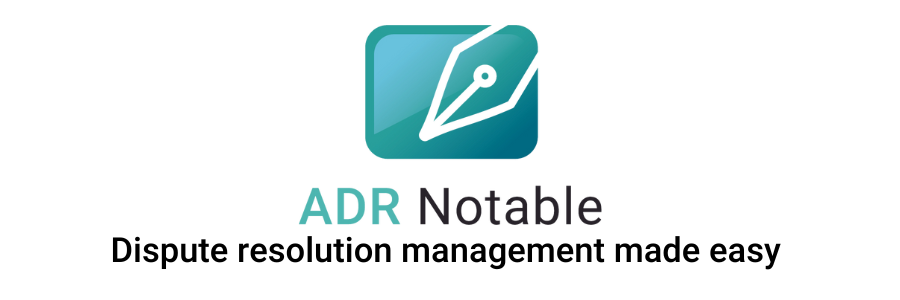|

 TODAY'S SESSIONS ARE SPONSORED BY 8:30 - 9:30am (1 hour) For the past 30 years, a global movement has been reshaping the legal landscape. What began as small, isolated efforts—mediation, collaborative practice, and restorative justice—has grown into an evolving paradigm that reimagines law as a dynamic, relational process. Once on the fringes, integrative law is now charting new routes through the increasingly complex terrain of legal and conflict resolution. This presentation maps the integrative law movement, exploring how traditional legal frameworks can be transformed into multidimensional guides for practitioners. Just as cartographers once charted uncharted territories, legal professionals are now navigating new pathways that align personal values with professional practice. By embracing a holistic approach, we will examine how this paradigm fosters sustainable, relationship-centered, and adaptive solutions. A key innovation in this evolving landscape is the Conscious Contracts® process. This methodology offers an alternative route for structuring agreements—one that integrates adaptability, relational frameworks, and shared values to help parties navigate conflict with clarity and purpose. Participants will be invited to explore how shifting from rigid legal structures to dynamic, values-driven maps can reveal new possibilities for justice, reconciliation, and peacebuilding. 1 CLE Credit 9:40 - 10:40am (1 hour) In our increasingly digital world, social media has transformed how professionals interact, communicate, and find clients. In “Mapping the Digital Landscape: How Mediators Can Optimize Social Media,” we’ll explore how to strategically use social platforms to expand professional reach and cultivate meaningful connections. From building a trusted online presence to understanding platform-specific best practices, this session provides actionable tips to help mediators navigate ethical considerations and leverage digital tools to build your practice. By the end, you’ll have a clear roadmap for harnessing social media’s power to make your mediation practice more visible, engaging, and impactful.
This session is designed to help practitioners develop a deeper awareness of triggering labels and their impact on communication and conflict resolution. These labels can subconsciously reveal a practitioner's true feelings or, conversely, obscure the genuine emotions of those involved in the conflict. Recognizing and understanding these dynamics is essential for fostering meaningful dialogue and achieving productive resolutions. Practitioners must learn to navigate and avoid triggering labels. The words we choose and the manner in which we engage with others can either facilitate understanding or create additional barriers. The way we communicate directly affects trust, collaboration, and the overall effectiveness of conflict resolution strategies. By refining their language and approach, practitioners can create a more supportive and respectful environment where all parties feel heard, valued, and understood. Mastering these skills leads to more constructive conversations and sustainable solutions in resolving conflicts. 12:00 - 1:00pm (1 hour) The Ray Corollary Initiative is a movement to encourage ADR providers and selectors to increase the utilization of neutrals with wide-ranging work and life experiences but who have been historically under-represented in the ADR field, while maintaining the parties’ autonomy to make the selection decision. The Initiative will accomplish its goal by urging providers to create slates, and selectors or parties to choose their proposed panels of neutrals, to include at least 30% of historically underutilized neutrals. This program will feature a panel discussion with national experts who will explore the history of the lack of inclusion and representation in many areas of the ADR field, the origin of the Ray Corollary initiative as a proposed remedy for this problem, the research behind its efficacy, and its future directions in the current landscape of federal policy and public opinion. 1 CLE Credit 1:10 - 2:10pm (1 hour) Legal ops professionals often serve as the connective tissue across legal teams, navigating the chaos of complex matters, clashing priorities, and shifting stakeholder demands. As legal work becomes increasingly fast-paced and fragmented, legal ops must manage interpersonal dynamics and operational pressure points—often stepping in as informal mediators. This session explores how process mapping, conflict resolution frameworks, and systems thinking can bring clarity to the chaos. Grounded in principles of UX design, we’ll examine how legal ops professionals lead by balancing structure with agility in high-stakes legal matters. Attendees will explore practical approaches to surfacing tension early and guiding legal teams toward resolution under pressure. 2:20 - 3:20pm (1 hour) As conflict resolution practitioners, we often study the five classic styles—Competing, Accommodating, Avoiding, Collaborating, and Compromising—as tools to flexibly navigate conflict. But in practice, many of us find ourselves stuck, defaulting to one or two approaches even when others might serve us—or our clients—better. Why? This interactive session explores what gets in the way of flexibility in conflict, using the lens of Immunity to Change (Kegan & Lahey) to reveal the internal commitments, fears, and assumptions that block growth. Rather than prescribing the “right” style, we’ll use the five conflict styles as archetypes to surface the deeper resistances that show up when we try to shift how we engage. Participants will be guided through reflective exercises and group discussion to uncover their own “immunity maps”—patterns that keep them anchored in habitual responses. This session is not just about personal insight; it’s about expanding our capacity to support clients as they navigate their own stuck points. Whether you're a mediator, coach, or facilitator, you’ll leave with tools to help yourself and others move through conflict with more awareness, agility, and intention. |









